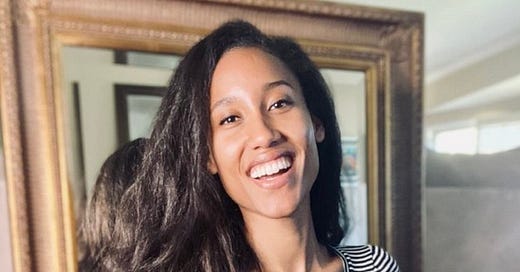Three Mothers of Black History: Feature Interview With Scholar and Author Anna Malaika Tubbs
In her powerful debut book “The Three Mothers: How the Mothers of Martin Luther King, Jr., Malcolm X, and James Baldwin Shaped a Nation” author Anna Malaika Tubbs champions the legacy of Black motherhood by profiling three women who cultivated three of America’s most iconic figures: Martin Luther King, Jr., Malcolm X, and James Baldwin.
A Ph.D. candidate in Sociology at the University of Cambridge, Anna was raised abroad in Dubai, Mexico, Sweden, Estonia, and Azerbaijan. Impacted by the deep cultural experiences and beliefs she was exposed to along with her own mother’s work in advocating for women’s and children's rights around the world, she became inspired to bring people together through the celebration of difference.
Recently we had to talk to Anna about her new book, the future of Black history, and the power of reading.
What fueled your decision to write “The Three Mothers?”
When I started my Ph.D., I wanted to join others in correcting the erasure of Black women. Because I had a limited amount of time in my program, I thought that researching famous men would give me enough information to start from. I became really interested in the notion of the woman "before" the man and started looking into the mothers of civil rights heroes.
The fact that Berdis (Baldwin), Louise (Little), and Alberta (King) were all born within 6 years of each other and their famous sons were all born within 5 years of each other presented an opportunity for me to share a story that celebrated the nuances and diversity of Black womanhood experiences while showcasing some of the intersections in their lives.
What sorts of surprising discoveries did you unearth while researching the book?
I was surprised by just how accurate my hypothesis was. I knew at the beginning that these mothers were very impactful in their sons' lives. But as I got further along in my discoveries it became clear that these sons simply could not have done everything they did without their mothers' influences.
Interesting. Can you elaborate a bit more on this point?
Alberta King raised her children to stand up for what was right in ways that were non-violent, she just didn't use that terminology. Louise Little was a radical Pan-Africanist and Garveyist who believed in loudly and proudly declaring Black unity and Black independence, with her son Malcolm following in her footsteps. Berdis Baldwin was a writer herself who taught everyone around her the importance of finding light in the darkness as well as how to move forward through forgiveness. Her son James inherited her talents in more ways than one.
How has your Ph.D. work in Sociology informed the message of “The Three Mothers?”
My dissertation and the book are quite different in that I spend much more time focusing on sociological theory in my dissertation. Although these kinds of works do not appear in the body of The Three Mothers, I still included them in my references because they influenced the lens with which I wrote the book. My Ph.D. research is about motherwit, liberatory motherhood, motherwork, and revolutionary mothering — all concepts I explain further in the dissertation and that guide my analysis in the book.
What book authors and thinkers have personally been most inspiring to you?
I’d have to say, Margot Lee Shetterly, Isabel Wilkerson, and Brittney Cooper.
What 1-2 books have had the greatest impact on your life?
“All the Women are White, All the Blacks are Men, But Some of Us are Brave” and “Sister Citizen.”
Describe your greatest hope in terms of what readers walk away with from your book?
I have many goals for the book but to summarize a few of them:
I want people to let go of the notion that movements are led by individuals who pop out of nowhere and accept the truth that movements are part of generational practices and they consist of families, friends, and support systems.
I want more people to recognize and appreciate the work of mothers but especially the work of Black mothers who for so long have been asked to not only care for their families but to care for many outside of their own communities. Yet they have been given virtually zero credit for everything they've done for our country.
I want people to be more aware and angry about the issues that affect us as Black women today - domestic violence, maternal mortality, the pay gap, reproductive injustices, and much more. Until we start addressing what Black women need in this country, we will keep repeating the mistakes of the past. It is time for more people to learn from the stories of Black women.





